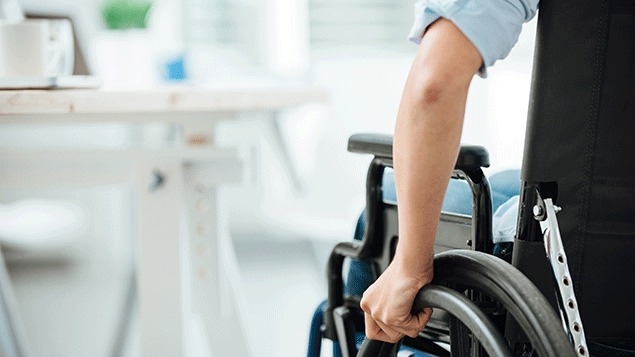The investigation also revealed low staffing at care homes, which according to health professionals, risks vulnerable residents…reports Asian Lite News
An investigation by the BBC has revealed shocking details of the exploitation of overseas care workers at a care home in northeast England. Nurses and care workers from overseas, who constitute a large portion of the workforce at care homes, are eligible for skilled worker visas in the U.K. This means that they need to be sponsored by an employer to be able to work in the country. If they leave their jobs, they need to find another suitable post within 60 days or will have to return to their home country.
The BBC Panorama investigation, conducted by Indian-origin reporter Balakrishnan Balagopal, revealed rampant exploitation of such care workers, to the extent that their contracts prevented them from leaving. Balagopal took the job of care assistant at Addison Court in Crawcrook – one of 15 care homes in the north-east of England owned by Prestwick Care – and worked there from September to November. During his investigation, Balagopal found out that care workers are being charged thousands of pounds by an Indian recruitment agency and that nurses are locked into lengthy contracts with care homes, facing large financial penalties if they leave early.
Around 50 elderly people live in Addison Court with an average weekly fee of about £1,100. These are paid for either by the local authority, the U.K. National Health Service (NHS), the residents or their families.
The investigation also revealed low staffing at care homes, which according to health professionals, risks vulnerable residents.
Nearly one-third of Prestwick Care’s employees are overseas workers. According to the BBC investigation, a resident of Kerala who had arrived on a sponsored visa in 2018 was hit with legal action by the home, claiming that he owed the company more than £5,000. The man was also told that his contract stopped him from working for any competitor care home for six months. The legal action was eventually settled by his new employer.
Prestwick Care has denied any malpractice or systematic wrongdoings towards overseas care workers.
Earlier this month, the U.K. also announced changes to its skilled worker visa regulations, which will come into effect next spring.
According to the new rules, overseas care workers will no longer be able to bring their partner or children with them to the U.K.
According to official statistics for the past year, 140,000 visas were issued to overseas workers to come to the UK to meet staff shortages in the health and care industry and 39,000 of these went to people from India.
“As I delved deeper into the lives of overseas caregivers, I heard a narrative of exploitation, debt, separation from family, and the constant fear of making mistakes,” Balagopal said in a statement.
“The pursuit of a permanent visa became a tightrope walk, impacting the quality of care provided. The very individuals tasked with ensuring the happiness and well-being of residents found themselves entangled in a web of instability,” he said.
Nurses and care workers from overseas eligible for a skilled worker visa need to be sponsored by an employer. In theory, they can switch jobs but within a limited timeframe, which can give employers a certain exploitative hold over them.
The ‘Care Workers Under Pressure’ investigation for the BBC comes soon after the Migration Advisory Committee (MAC), the independent body advising the UK government on immigration, warned of exploitation in the country’s social care sector in its annual report released last week.
“Underfunding and consequential low pay contributes to the exploitation of workers in the social care sector. Migrants in the sector on the H&CW (Health & Care Worker) visa are even more susceptible to exploitation as their right to reside in the UK is directly linked to their employer, creating a power imbalance,” the MAC report notes.
It issued a series of recommendations for the government to crack down on the exploitation of workers in the social care sector.
“Government could consider greater support for migrants when they enter employment and when experiencing exploitation in the UK… such as creating a portal specifically for the care sector where vacancies that would allow migrants to switch employer are posted,” it said.
MAC also called on the government to ensure higher wages for the sector on the whole in a bid to wean it off the over-reliance on lower-paid migrant workers.
Earlier this month, the Home Office announced that such care workers on a visa will be banned from bringing any close family members as dependents from the new year. The move has been categorised as “extremely unfair” by the British Association of Physicians of Indian Origin (BAPIO), the UK’s largest representative body for doctors and nurses of Indian origin.
“For anyone to provide a satisfactory and good quality care service, they can’t be separated from their own family,” said BAPIO founder Dr Ramesh Mehta.
ALSO READ-Sunak Faces Political Crisis Over Controversial Immigration Bill

Leave a Reply